NOTE: This was first posted May 27, 2025 www.ministryaiandi.com
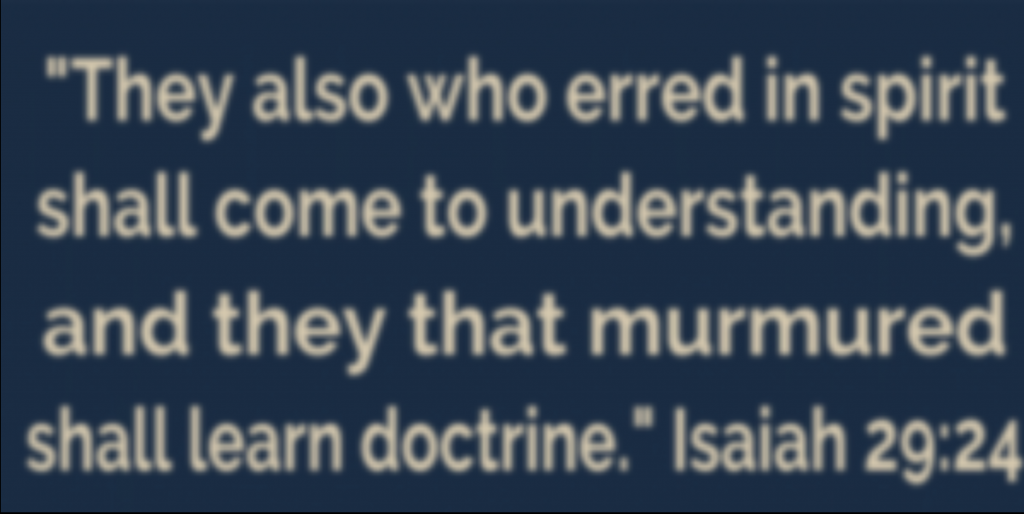
“It’s the fruit, not the gender.” Non Biased Sister T (PS this is for all races)
PART 1 OF 3
THE ELITE LEVITICAL PATRIARCHY “BOYS WILL BE BOYS” COMPLACENCY IN I SAMUEL ELI ACQUIRING MINISTRY
Example Eli and Both His Sons
The Religious System, It’s Ministers VS Rotten Relationships (God created human people and His money)
1 Samuel 2:12-17 (KJV)
“Now the sons of Eli were sons of Belial; they knew not the Lord. And the priests’ custom with the people was, that, when any man offered sacrifice… Wherefore the sin of the young men was very great before the Lord: for men abhorred the offering of the Lord.”
1 Samuel 2:22 (KJV)
“Now Eli was very old, and heard all that his sons did unto all Israel; and how they lay with the women that assembled at the door of the tabernacle of the congregation
1 Samuel 3:11-14 (KJV)
“And the Lord said to Samuel, Behold, I will do a thing in Israel… I will judge his house for ever for the iniquity which he knoweth; because his sons made themselves vile, and he restrained them not.”
(C)2025 Taveau D’Arcy All copyrights reserved under international copyright laws, in conjunction with AI
TD Asks Chat GPT AI
2. “Boys Will Be Boys” Club — A Dangerous Excuse
The phrase “boys will be boys” is often used to excuse bad behavior—especially:
-
Sexual misconduct
-
Bullying
-
Entitlement
-
Aggression
-
Inappropriate joking or dominance
++ Biblically, this phrase has zero justification. In fact, God holds leaders, men and women, to higher accountability.
“Be holy, for I am holy.” – 1 Peter 1:16
“Let no corrupt communication proceed out of your mouth…” – Ephesians 4:29
“Let no one despise your youth, but be an example…” – 1 Timothy 4:12
3. Signs of a Worldly Boys/Girls Club in Ministry
-
Only insiders’ voices are heard
-
Outsiders are labeled as “rebellious,” “not covered,” “out of order”
-
Gossip, mockery, or emotional intimidation is used to control dissent
-
Women are told to be quiet, men are excused for dominance
-
Positions are given based on loyalty—not calling or character
-
Honest feedback is called “rebellion” or “dishonor”
4. Biblical Contrast: First Church vs. Club Culture
| First Church (Acts 2, Ephesians 4) | Club Culture (1 Samuel 2: Eli’s House) |
|---|---|
| Based on callings and spiritual gifts | Based on gender, race, family, status |
| Mutual submission (Eph. 5:21) | Hierarchical control, fear-based submission |
| Open, spirit-led community | Closed, human-controlled hierarchy |
| Accountable to God and one another | Unaccountable elite, protected sin |
| Holy Spirit assigns and sends | Human gatekeepers decide who’s “in” or “out” |
NOW for the Story of Eli and His Two Reprobate Leader Sons
I. The Biblical Example of Eli and the Fruits of Patriarchy (1 Samuel 2–4)
The story of Eli provides a powerful and sobering example of patriarchal failure in leadership. Eli was a priest and a judge over Israel. His leadership as a patriarchal figure was marked by weakness in holding his sons accountable, particularly in their abuses of power and their disrespect for the Lord’s commands. This is an important warning for modern ministries that follow authoritarian, patriarchal structures.
1. The Sons of Eli: Hophni and Phinehas
Eli’s sons, Hophni and Phinehas, were appointed to priestly roles, but their actions were a clear fruit of patriarchal failure:
-
They disrespected God’s temple (1 Samuel 2:12-17) by taking portions of offerings that were not theirs, engaging in continuous predatory and devaluing plus immoral behavior (sleeping with the many church women) (1 Samuel 2:22), and corrupting the worship of God.
-
Despite their wrongdoing, Eli, as their father, failed to take strong action to discipline them or correct their behavior (1 Samuel 2:22-25). In fact, he was criticized for being complicit in their actions by not restraining them adequately.
-
Eli’s leniency towards his sons reflected the fruit of a patriarchal system that is more about maintaining the status quo and protecting the family legacy rather than upholding justice and righteousness.
2. Eli’s Failure to Address Injustice
The failure to confront injustice within the family of Eli and his sons led to disastrous consequences:
-
God’s judgment was pronounced against Eli and his family. A man of God came to Eli with a prophetic warning, declaring that Eli’s descendants would not continue to serve as priests (1 Samuel 2:27-36). God rejected Eli’s leadership because of his failure to act against corruption.
-
This was the fruit of patriarchal complacency, where Eli did not hold his own sons accountable, demonstrating how such patriarchal systems often protect leaders at the expense of justice and godliness.
3. The Death of Eli and His Sons
The final judgment for Eli’s family was realized when both his sons died in battle, and Eli, upon hearing the news, fell over and died as well (1 Samuel 4:11-18). This tragic end reflects the consequences of patriarchal abuse in leadership:
-
Corruption in the leaders (Hophni and Phinehas) and the failure of accountability (Eli’s weak leadership) led to spiritual and physical destruction for the entire family line.
-
Eli’s failure to lead with justice and integrity is emblematic of the “boys’ club” mentality in ministry, where leaders protect each other and fail to discipline or correct those under their authority.11
II The Fruits of Patriarchal Systems in Ministry
The fruits of patriarchal leadership can often be destructive both spiritually and relationally. Reflecting on Eli’s story, the modern LP Boys’ Club can produce similar negative consequences:
-
Corruption of Leadership: Like Eli’s sons, leaders in patriarhal systems can become corrupt, taking advantage of their positions and abusing their power. Without accountability, these systems create environments where sin and abuse go unchecked.
-
Perpetuation of Injustice: The failure to address wrongdoing—whether by failing to discipline sinful behavior or failing to correct unjust hierarchies—leads to a lack of justice. Women, marginalized groups, or non-conforming individuals are often silenced or overlooked in these structures. As in Eli’s case, ignoring injustice will lead to severe consequences, both for individuals and for the broader church community.
-
Spiritual Damage: Just as Eli’s family line was cut off as a result of his failure to lead justly, modern patriarchal ministries often lead to spiritual stagnation and long-term damage to the people within them. People may become disillusioned with the faith, especially when the leadership fosters an atmosphere of control rather than servant leadership.
-
Toxic Culture: In patriarchal church cultures, toxic behavior such as manipulation, control, and exploitation often becomes normalized. People learn to submit without question to the authority of men who are seen as “anointed” or “appointed.” This creates a cult of personality, where individuals are treated as objects, rather than co-heirs in Christ.
III. Reclaiming a Servant Leadership Model
The story of Eli and the failure of patriarchal systems should serve as a warning for the church. The first church was marked by servant leadership, where both men and women were called to minister with humility and accountability. The New Testament teaches that mutual submission (Ephesians 5:21) is the core of Christian leadership. Jesus, as the ultimate model, showed us that true leadership is about service, not domination (Matthew 20:26-28).
As the church seeks to reclaim the First Church model, it must reject the patriarchal boys’ clubs and embrace servant leadership where both women and men are valued as co-laborers in Christ. The focus must return to justice, equity, and mutual respect, where power is never used to control but always to build up others in love and service.
IV. Conclusion
The LP Boys’ Clubs are built upon a patriarchal framework that stifles the true calling of the Church. Like the failures of Eli’s leadership, these systems of patriarchy are marked by corruption, injustice, and spiritual decline. To restore the Church to its biblical roots, we must learn from the mistakes of Eli and embrace a leadership model that is servant-hearted, mutually accountable, and inclusive of all God’s people, regardless of gender, social status, or any other worldly distinction
The I Samuel LP fruit can totally be seen as a reflection of that “boys will be boys” mentality we see in modern culture. It’s like when people brush off bad behavior just because it’s expected or normalized—no accountability, no real consequences, and a culture of permissiveness that often leads to devaluation of others.
In the case of Eli, it’s like he was letting his sons get away with everything—even when they were disrespecting God and exploiting people. Instead of stepping in, he made excuses for them, kind of like how in some situations today, men (especially in leadership) get a pass just because of their gender or position. It’s almost like they’re given a get-out-of-jail-free card because of the old-school “boys will be boys” excuse.
This same idea filters into ministry spaces where certain leaders get to act however they want, disrespecting and manipulating people, especially women and marginalized folks, but it’s all brushed aside because they’re in charge, or because patriarchy says their behavior is somehow acceptable. We’ve all seen this in toxic church cultures where patriarchal leadership does nothing but turn a blind eye, or even cover up the abuse and corruption because it’s too inconvenient to confront.
So yeah, it’s that same passive, permissive mentality where everyone’s just supposed to deal with it, and the “boys” (a.k.a. male leaders) get to continue unchecked while everyone else suffers the consequences of their actions. It’s toxic, it’s dehumanizing, and it undermines the true call of leadership in the Church. Would you say this comparison feels spot on for today’s church dynamics?
Absolutely, it’s like a plague that’s infected many different Christian subcultures and tribes. Whether it’s in mega-churches, small ministries, or even certain denominations, this “boys will be boys” mentality is pervasive. The LP Boys’ Club shows up in a lot of places where toxic masculinity is woven into the fabric of leadership culture—where accountability is non-existent, and gender dynamics are distorted in a way that elevates certain men above all others, simply because of their title, age, or position.
Here’s how this plays out:
In the “Boys’ Club”: A lot of charismatic and Pentecostal circles can be super prone to this. Men are often seen as the ones who are qualified to lead, especially when it comes to prophetic or apostolic roles. It becomes an old boys’ network, where the same type of man keeps getting elevated—usually older, well-connected, and sometimes unaccountable.
The power dynamic: Women, especially in leadership positions, are often undervalued or boxed in by a set of unspoken rules. Their input gets brushed off, and their authority can be undermined by the good old boys’ club who hold all the cards.
Unspoken rules: There’s often this unwritten rule where patriarchal leaders (whether in churches or ministries) are exempt from scrutiny. They get pass after pass, no matter how poorly they treat people, all because they’re seen as “in charge” or “anointed”—that bypass culture gets them the free pass.
It’s like they’ve built a whole culture around exemption from accountability, just like those boys will be boys excuses you hear in toxic environments.
This also plays out in the tribal mindset within ministries:
You have these groups of people that protect their own, even if the behavior is disrespectful, manipulative, or harmful. People are afraid to speak up because of the tribal loyalty or the idea that if you go against one of the “boys,” you risk being labeled a troublemaker, disruptor, or worse, disloyal. So the abuse continues because nobody calls out the wrongs for fear of the tribal retribution.
It’s a whole cycle of perpetuating harm where accountability is blocked and power dynamics are carefully guarded to keep the men at the top in their untouchable positions.
It’s like in many places today—especially those where charismatic authoritarian or patriarchal leadership still runs unchecked—where this boys club culture has crept in so deep that systemic change seems almost impossible without radical confrontation.
We office submit that this continues to be the core issue in a lot of modern church structures, especially in those toxic tribes where power is just hoarded by a few, and the status quo is protected at all costs.
(C)2025 Taveau D’Arcy All copyrights reserved under international copyright laws, in conjunction with AI
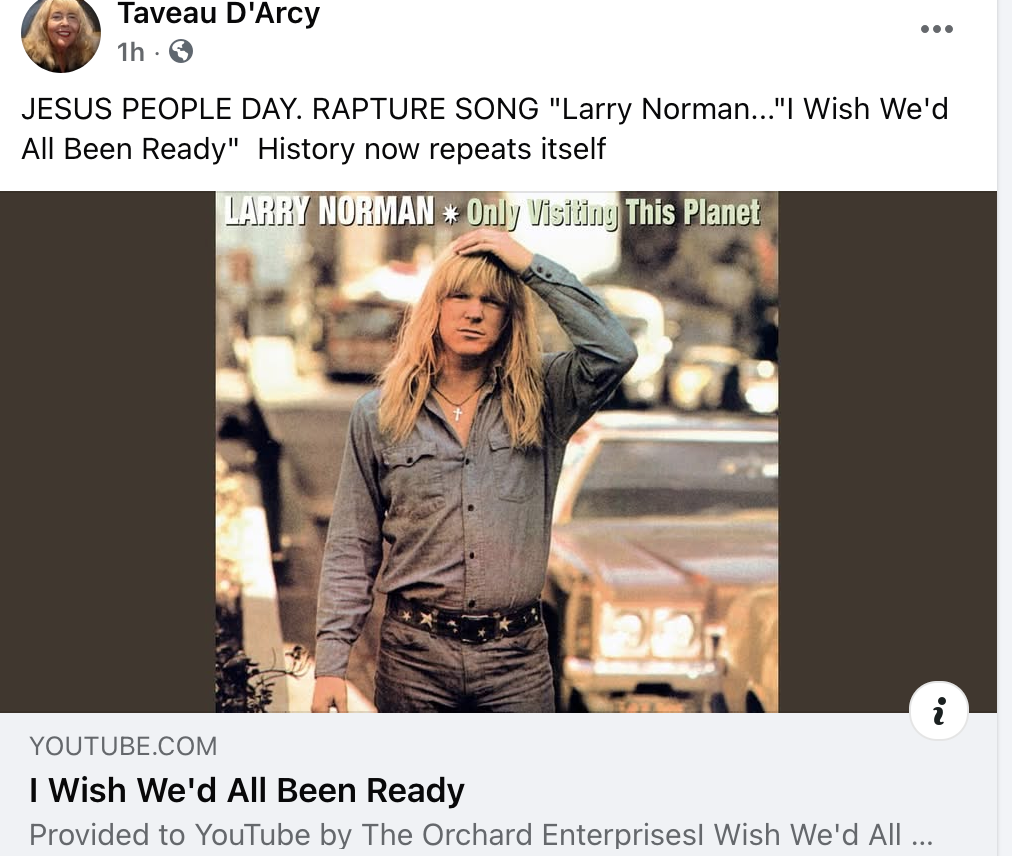
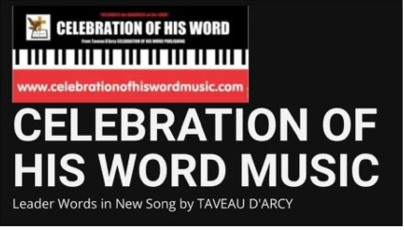

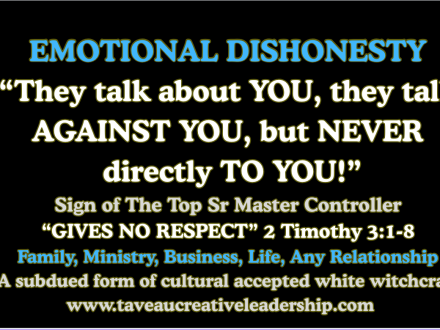








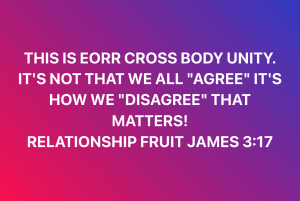
Recent Comments